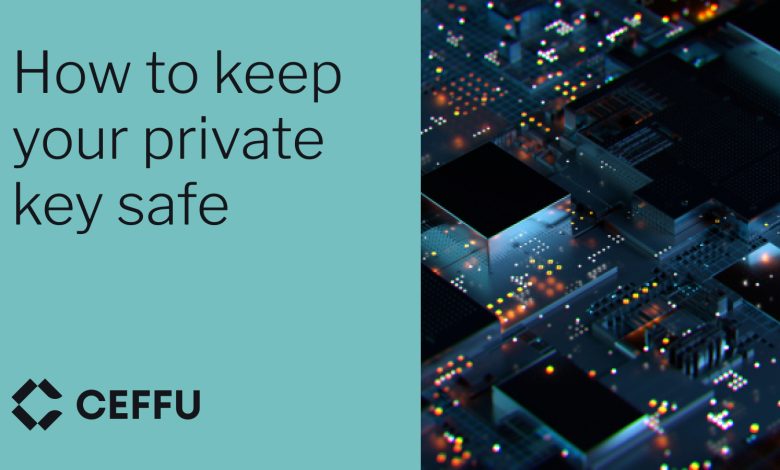The Importance of Private Keys and How to Protect Them

- Understanding the Role of Private Keys in Cryptocurrency Security
- Why Private Keys are Essential for Safeguarding Your Digital Assets
- Best Practices for Generating and Storing Private Keys
- The Risks of Losing or Sharing Your Private Keys
- How to Keep Your Private Keys Secure from Hackers and Scammers
- The Future of Private Key Protection in the Digital Age
Understanding the Role of Private Keys in Cryptocurrency Security
Private keys play a crucial role in ensuring the security of cryptocurrency transactions. These keys are essentially a form of digital signature that allows users to access their funds and authorize transfers. Without a private key, it is impossible to prove ownership of a cryptocurrency wallet, making it essential to keep this key secure at all times.
When it comes to protecting private keys, there are several best practices that users should follow. One of the most important things to remember is to never share your private key with anyone else. Additionally, it is crucial to store your private key in a secure location, such as a hardware wallet or encrypted USB drive. By taking these precautions, you can help prevent unauthorized access to your funds and protect your investment in cryptocurrency.
In the event that you do need to share your private key with a trusted party, such as a family member or financial advisor, it is essential to do so securely. One way to accomplish this is by using a secure messaging platform or encrypted email service. By taking these extra steps to protect your private key, you can help minimize the risk of unauthorized access and keep your cryptocurrency holdings safe and secure.
Why Private Keys are Essential for Safeguarding Your Digital Assets
Private keys are a crucial component in safeguarding your digital assets. These keys act as a secure way to access and manage your cryptocurrencies or other digital holdings. Without your private key, you risk losing access to your assets permanently. It is essential to keep your private key secure and confidential to prevent unauthorized access.
When you create a digital wallet to store your assets, you are provided with a private key. This key is a long string of alphanumeric characters that serves as your unique identifier in the blockchain network. With this key, you can sign transactions and prove ownership of your assets. Losing or compromising your private key can result in irreversible loss of your digital assets.
By keeping your private key secure, you ensure that only you have access to your digital assets. It is crucial to store your private key in a safe place, such as a hardware wallet or encrypted storage device. Avoid sharing your private key with anyone and be cautious of phishing attempts or scams that may try to trick you into revealing your key.
Remember, your private key is the key to your digital wealth. Treat it with the utmost care and take all necessary precautions to protect it from unauthorized access. By understanding the importance of private keys and implementing best practices for safeguarding them, you can ensure the security of your digital assets for the long term.
Best Practices for Generating and Storing Private Keys
When it comes to generating and storing private keys, there are several best practices that should be followed to ensure the security of your digital assets. Here are some key guidelines to keep in mind:
- Use a Secure Random Number Generator: It is crucial to use a secure random number generator when creating private keys. This helps to ensure that the keys are truly random and not predictable by hackers.
- Keep Your Private Keys Offline: Storing private keys offline, also known as cold storage, is one of the most secure ways to protect them from online threats. Consider using hardware wallets or paper wallets for this purpose.
- Backup Your Private Keys: Always create backups of your private keys and store them in multiple secure locations. This will help you recover your keys in case of loss or damage to the original storage.
- Encrypt Your Private Keys: Encrypting your private keys adds an extra layer of security, making it harder for unauthorized parties to access them. Use strong encryption algorithms for this purpose.
- Avoid Sharing Your Private Keys: Never share your private keys with anyone, as this can compromise the security of your digital assets. Keep your keys confidential and only share them with trusted individuals when necessary.
By following these best practices for generating and storing private keys, you can significantly reduce the risk of unauthorized access to your digital assets and protect your investments in the long run.
The Risks of Losing or Sharing Your Private Keys
When it comes to private keys, the risks of losing or sharing them can be significant. If you lose your private keys, you may permanently lose access to your digital assets, such as cryptocurrencies or sensitive information. This can result in financial loss and potential security breaches. On the other hand, sharing your private keys with others can also pose a threat to your security and privacy. Unauthorized access to your private keys can lead to unauthorized transactions and compromise the confidentiality of your data.
How to Keep Your Private Keys Secure from Hackers and Scammers
Protecting your private keys from hackers and scammers is crucial to safeguarding your digital assets. Here are some essential tips to help you keep your private keys secure:
- Use a hardware wallet: Consider storing your private keys offline in a hardware wallet to minimize the risk of online attacks.
- Enable two-factor authentication: Add an extra layer of security by enabling two-factor authentication for your accounts that use private keys.
- Avoid phishing scams: Be cautious of emails or messages asking for your private key information, as these could be phishing attempts by scammers.
- Keep software updated: Regularly update your software and applications to patch any vulnerabilities that hackers could exploit to access your private keys.
- Use strong passwords: Create complex passwords for your accounts to make it harder for hackers to guess or crack them.
By following these best practices, you can significantly reduce the risk of your private keys falling into the wrong hands. Remember, protecting your private keys is essential for maintaining the security of your digital assets.
The Future of Private Key Protection in the Digital Age
In the digital age, the protection of private keys is crucial to safeguarding sensitive information and preventing unauthorized access to personal data. As technology advances, the methods used to protect private keys must also evolve to keep pace with emerging threats.
One of the key challenges in private key protection is ensuring that they are stored securely and cannot be easily compromised. Encryption techniques play a vital role in safeguarding private keys from unauthorized access. By encrypting private keys, individuals can add an extra layer of security to prevent them from falling into the wrong hands.
Another important aspect of private key protection is the use of secure storage solutions. Hardware security modules (HSMs) are specialized devices designed to store and protect private keys. These devices offer a high level of security by keeping private keys isolated from the rest of the system, making it difficult for hackers to gain access.
In addition to encryption and secure storage, implementing strong access controls is essential for protecting private keys. By limiting access to private keys to only authorized individuals, organizations can reduce the risk of unauthorized access and potential data breaches. Multi-factor authentication, biometric verification, and role-based access controls are some of the methods that can be used to enhance access security.
Looking ahead, the future of private key protection will likely involve the use of advanced technologies such as quantum-resistant encryption and blockchain-based solutions. These technologies have the potential to further enhance the security of private keys and protect them from increasingly sophisticated cyber threats.
In conclusion, the protection of private keys is paramount in the digital age to safeguard sensitive information and prevent unauthorized access. By implementing encryption, secure storage solutions, and strong access controls, individuals and organizations can mitigate the risk of private key compromise and enhance their overall cybersecurity posture. As technology continues to evolve, staying informed about the latest advancements in private key protection will be essential to maintaining a secure digital environment.



